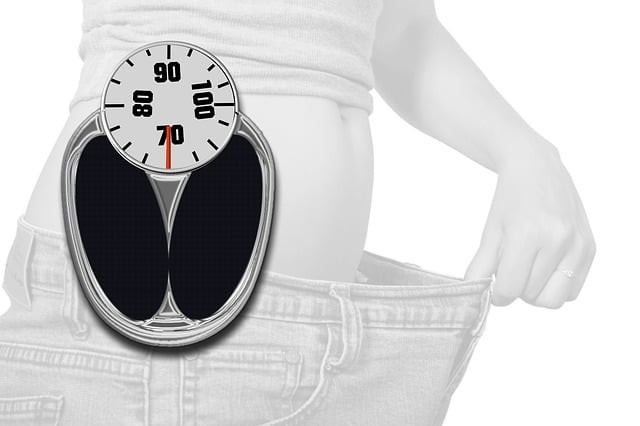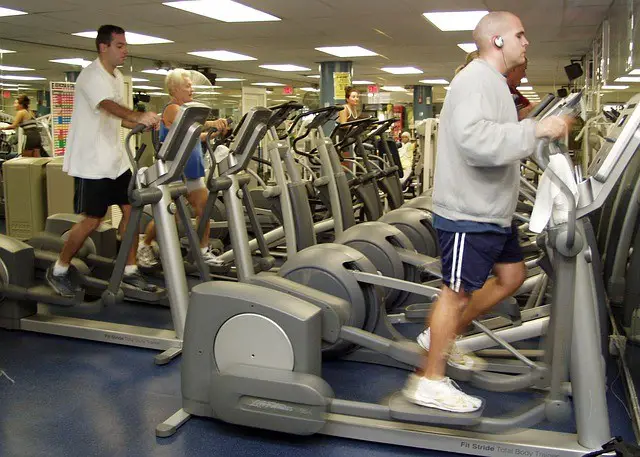When trying to lose weight a healthy diet plus physical activity play a significant role in achieving your goal. A keto diet and intermittent fasting will create a calorie deficit that will force your body to use its secondary source of fuel, fat. Physical activity, whether you’re doing a long walking routine or a short running routine, helps you burn calories promoting weight loss.
Walking and running are both good ways of attaining a healthy body weight. But most people find themselves in a pickle when deciding between walking or running. Which one burns more calories? Do they have the same benefits for the body?
Which is better for weight loss, running or walking? This is entirely dependent on you and what your body needs! It is not a one-size-fits-all kind of situation. Choosing the type of physical activity, you will engage in does not rely on how many calories are burned only, but also on time and individual strength, and perseverance.
In this article, we will look at the reasons to do cardiovascular exercises, and asses the benefits of walking and running on weight loss, heart health, belly fat, and overall health.
Walking or Running to Burn Belly Fat

Running is more effective at burning belly fat than walking because it burns more calories. A randomized study aimed to measure the effects of exercise on body weight and body composition showed that individuals on vigorous exercise lost more body mass and fat mass than those on moderate-intensity workouts. Running led to more abdominal fat loss and a greater reduction in waist and hip circumference than walking.
A meta-analysis on the effects of high-intensity interval training on visceral fat and abdominal fat mass showed that individuals on HIIT like running lost more belly fat and visceral fat than those on low-impact HIIT like cycling. Since walking is low impact, we can assume the same to be the case.
Walking 5 Km Vs Running 5 Km

Running 5 km will burn more calories over a short period which makes it better than walking. The main difference between walking vs running that makes running better for weight loss is it burns more energy.
Which is Better for Weight Loss, Running or Walking?
Which is better for weight loss, running or walking? Running is your best bet since it burns more calories compared to walking.
Burning Calories
You can burn twice as many calories from running than walking. It also takes a shorter period to lose weight while running than it would be walking.
A study from the National Runner’s and Walker’s health study compared weight changes in people who had been walking or running. Both national runners and walkers experienced weight loss, but runners experienced more weight loss than walkers. Runners also maintained a lower body weight for longer.
This difference in weight change was attributed to increased post-exercise metabolic rate and post-exercise appetite suppression in vigorous exercises than in less vigorous ones.
However, if you cannot run or you just don’t like it, here are some reasons that will help you view walking as a great form of exercise too.
Why Walking is Better Than Running

Walking Is A Low Impact Exercise
Running burns more calories but it places more impact and stress on your joints and feet. The body absorbs an impact of thrice your body weight each time you land on the ground. When you’re walking there’s not as much force hitting the ground so it is less stressful for your joints and feet.
Walking is better for older adults, overweight individuals, and people with injuries or those who have been previously injured. Healthy people don’t have to worry about joint health and bone mass density when running. The right pair of shoes can help you reduce the stress and impact on your feet and joints.
Walking Lowers Blood Pressure and Cardiovascular Risk Factors More Efficiently
A study to investigate the efficiency of walking or running on cholesterol hypertension and diabetes risk reduction showed that walking significantly reduced blood pressure and risks of coronary heart disease (CHD) than running. Blood pressure levels were lowered by 7.2% and the risk of CHD by 9.3% when walking while runners were 4.2% and 4.5% for blood pressure and risk of CHD respectively.
Walking Lowers Risk of Injury
Running is associated with a higher risk of exercise-related injuries than walking. Injuries include Achilles tendonitis, muscle strains, and stress fractures. Running is a high-impact exercise that increases the chances of overuse injuries.
Research has shown that you are less likely to get injured walking than running. However, if you overdo walking, you may also get the same injuries that running causes.
5 Differences Between Walking and Running
Which is better for weight loss, running or walking? For weight loss, running wins but we have seen some benefits that can make you go for walking over running. Although, what are the major differences between walking and running?
Intensity
Running is considered a high-intensity exercise which is more vigorous while walking is a moderate-intensity activity.
Level of Exercise
Walking is considered the best exercise at the beginning of your exercise program. Start slow, then gradually move at a brisk pace before you pick up jogging. This is why a walking group isn’t a bad idea at the start of your weight loss journey. Swinging your hands vigorously will also give your upper body a much-needed workout as well.
Once walking is part of your everyday life and you want to increase the calories burnt, then you can start running. Running and walking offer similar health benefits, however, the latter is considered a low-intensity exercise ideal for beginning the fitness journey.
Impact
When comparing walking versus running most people only pay attention to the distance covered. But think about it, do you know that every time you walk there’s always one foot on the ground? Could you say the same thing for running?
Since with running, you’re suspended in the air with each stride, the force at which you hit the ground is greater. Thus, running is a high-impact exercise while walking is a low-impact exercise.
Injury Risks
Running burns more calories and fat, but it also has a higher risk of injury than a walking workout. Research has shown that walkers have a reduced risk of getting injured compared to runners.
Cardio and Endurance
You may take more time burning the same amount of calories from walking than running, however, if you evened out the calories burnt, you would be getting similar health benefits from both.
This means if you met the same energy expenditure when running by walking, you will have a similar high blood pressure lowering results and lower risk of cardiovascular disease.
The difference is you will get better endurance and stamina from running regularly than walking.
Is Walking or Running Better for Your Heart?

Both walking and running are good for heart health. However, in the battle of walking and running for your heart, walking has been proven superior.
A study published to test whether equivalent energy expenditure by moderate and high-intensity exercises yielded the same benefits resulted in a 4.2% reduced risk of hypertension in runners, 4.3% lower risk of hypercholesterolemia, 12.1% diabetes mellitus risk reduction and a 4.5% lower risk of coronary heart disease.
When it came to walking, there was a 7.2% hypertension risk reduction, 7% lower risk of high cholesterol levels, 12.3% diabetes risk reduction, and 9.3% lower risk of coronary heart disease.
This study published in the American Heart Association’s medical journals proves that walking is better for heart health than running.
Walking for 30 minutes every day, three to five times a week has been associated with measures that improve heart health like a healthy weight, and lower body mass index, waist circumference, and insulin levels.
Is It Better to Walk Fast or Jog Slow?
We have determined which is better for weight loss, running or walking. But when it comes to brisk walking or slow jogging, which will give you better results? Walking at a brisk pace will promote weight loss, but not as fast as jogging.
You can make walking more effective for reducing body fat than running in more ways than just increasing the pace and distance of your walk. One way is to combine strength training when walking. For example, incline walking will increase the intensity of your walk yielding better results than running. You can do incline walking by walking up and down a hill or stairs.
Another way to increase overall body fat burn with walks is walking while wearing a weighted vest. A weighted vest that is not more than 10% of your body weight is the most ideal for similar results to those of running.
Instead of brisk walking, go for interval walking which is walking fast for a while then slowing down, before picking up the pace again. Jogging is better than walking fast but try these tips to even out the playing field.
Final Thoughts
Which is better for weight loss, running or walking? The best exercise for weight loss is the one that works for you. Whatever fits into your schedule and is easier to maintain is what is best for you. My advice would be to start slow and build up the intensity gradually.
Also, remember that the right diet plays a big role in weight loss. A low-carb, high-fat diet and exercise are the best lifestyle choices for weight management.
Are you a walker or a runner? Why do you choose walking over running or vice versa? After reading this article would you consider adding strength training to your cardio routine? Finally, what diet are you on to complement your exercises? Let me know in the comment section!







